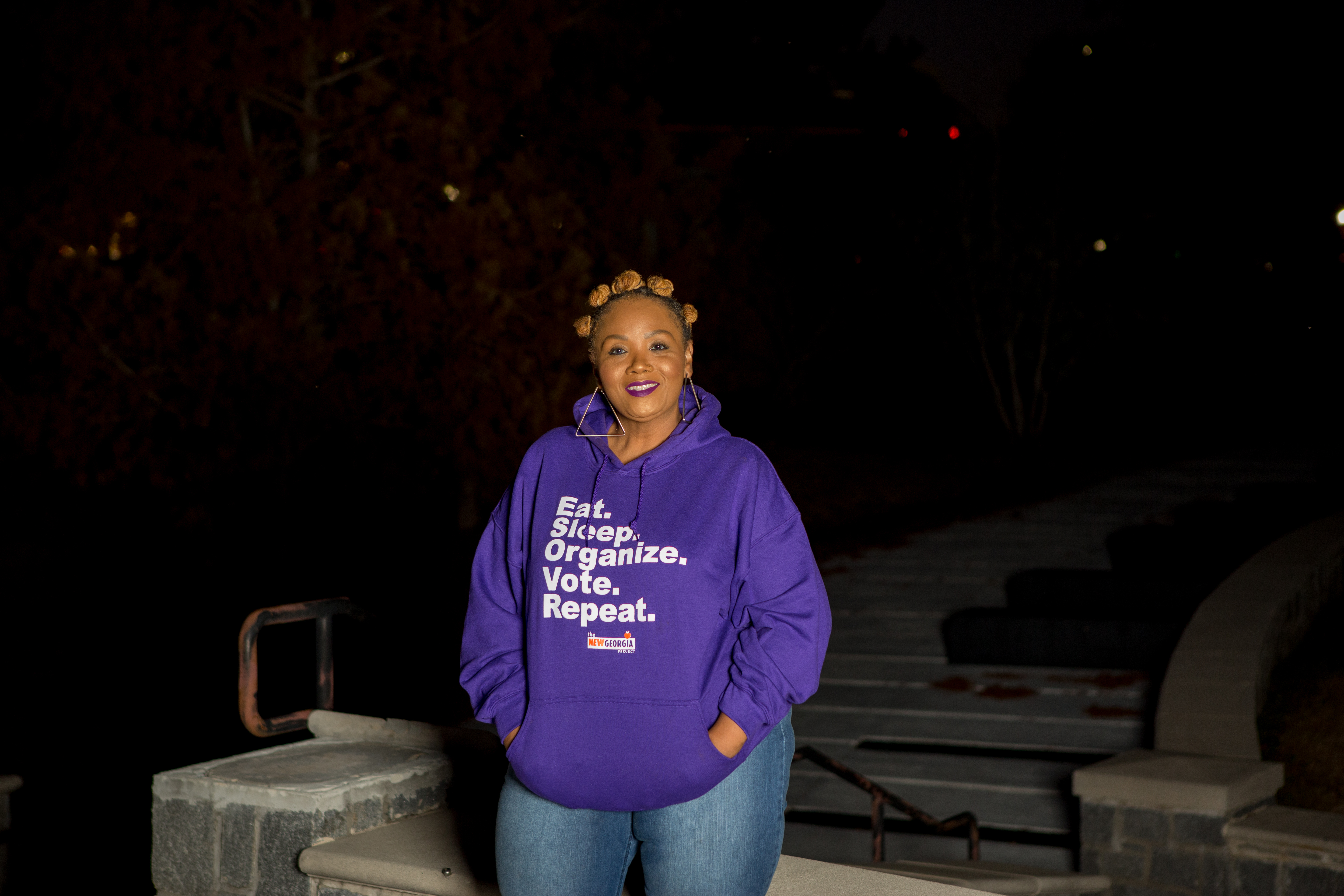
Source: Maui Bigelow / iOne Digital
Early voting for Georgia’s Senate runoff election began Monday and Black women like myself are preparing to show up and show out at the polls. Despite being seen and oftentimes treated as less than, we consistently answer the call for change by supporting, energizing, and educating our communities. With 2020 being a hotbed for social justice issues among many other things, Black women will do what we have always done come January 5: be the change we want to see in the world.
In an effort to be a part of that change and encourage other women to exercise their power at the polls, I’m supporting the New Georgia Project, one of many organizations like Fair Fight Action and the National Coalition On Black Participation, fighting voter suppression in the Peach State. And to help provoke change and get Georgians to return to the polls for this historic runoff race, they are enlisting community leaders, celebrities, and influencers like myself to encourage our audiences to vote.
Prior to Joe Biden’s election, Georgia hadn’t carried a Democratic presidential candidate since 1992. Even with the historic win of the United States’ first Black President, Georgia remained red with Barack Obama only receiving 47 percent of the votes. President-elect Biden, however, claimed 49.5% of the state’s vote and turned Georgia blue for the first time in nearly 30 years.
The Democratic rise in Georgia came on the heels of Stacey Abrams being cheated out of Georgia’s Governor seat by Brian Kemp. While Kemp was basking in his stolen victory, Stacey was using her voice to make a greater impact among the people. The efforts of women like Abrams, Latoya Brown ( Black Voters Matter), Nse’ Ufot, Melanie L. Campbell, Tamieka Atkins, Helen Butler, and Deborah Scott deserve high praise for what is merely the beginning of much-needed change in GA. The results of the upcoming runoff elections will determine not only what work is done in the state but how. And the outcome will have a lasting effect on healthcare, employment, and criminal justice– all issues that negatively impact African-Americans at a greater rate than any other community.
My major concern is healthcare because I’m currently living with Multiple Myeloma and an eye disease known as Scleritis which has severely damaged my corneas. While my story doesn’t mimic that of the more than 1.5 million Georgians without health insurance, it isn’t much better. Many months I struggle with paying certain bills in an effort to ensure I have money for copays, trips to and from Atlanta to see specialists, and fill prescriptions. Growing up, my mother was a welfare recipient and while it‘s not something I‘m ashamed of, it’s not a method of survival I ever wanted to resort to. However, as a self-employed single mother overwhelmed with health issues, here I am, partially relying on state-issued insurance to offset medical bills.
According to The Atlanta Journal-Consitution, access to health care in Georgia is worse than most states, with nearly 20% of Georgians stating in the past calendar year they have needed medical care of some sort but couldn’t afford it. This and other disparities in healthcare are the reason so many African American lives have been lost due to COVID-19. Oh, and did I mention Georgia’s healthcare system ranks in the bottom (number 49 among the 50 states in one analysis) when it comes to such issues as premature deaths, infant mortality, diabetes, and cancer?
As a product of rural racist Georgia (Iron City), I know color and class divides exist. However, during a global pandemic, inequities within our healthcare system should not so obviously exhibit the gaps between rich and poor, Black and white, and rural and urban. The proposed expansion of Georgia Medicaid would make nearly 600,000 Georgians eligible for healthcare but instead, Georgia residents are paying taxes to grant people in other states access to healthcare and poor Black Georgians, like my cousin Soniget Johnson and my friend and fellow HBCU grad Femi Anderson, are dying.
My reality and the stories of so many Georgians make this election just as important as the one that removed the bigot from the White House. In the words of rapper and Atlanta native Lil Baby, when it comes to the Senate race, “it’s bigger than black and white.” It’s actually like or death for some of us.









